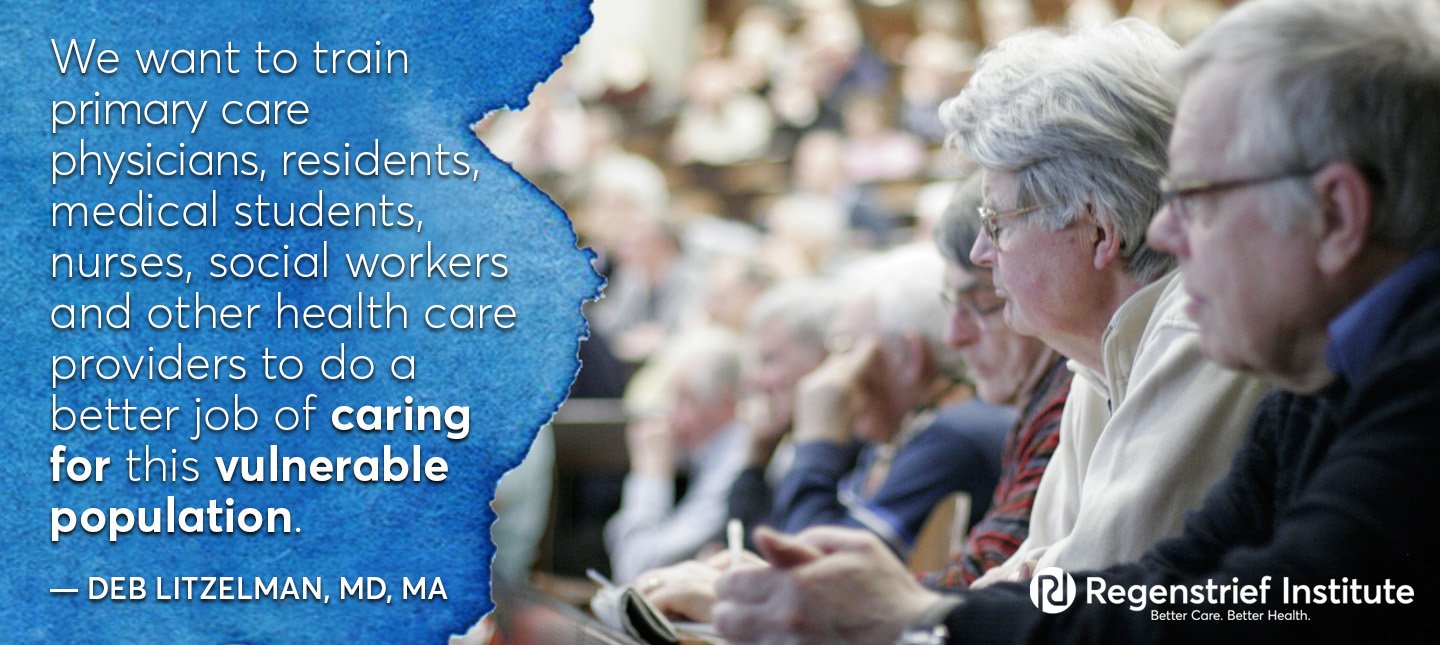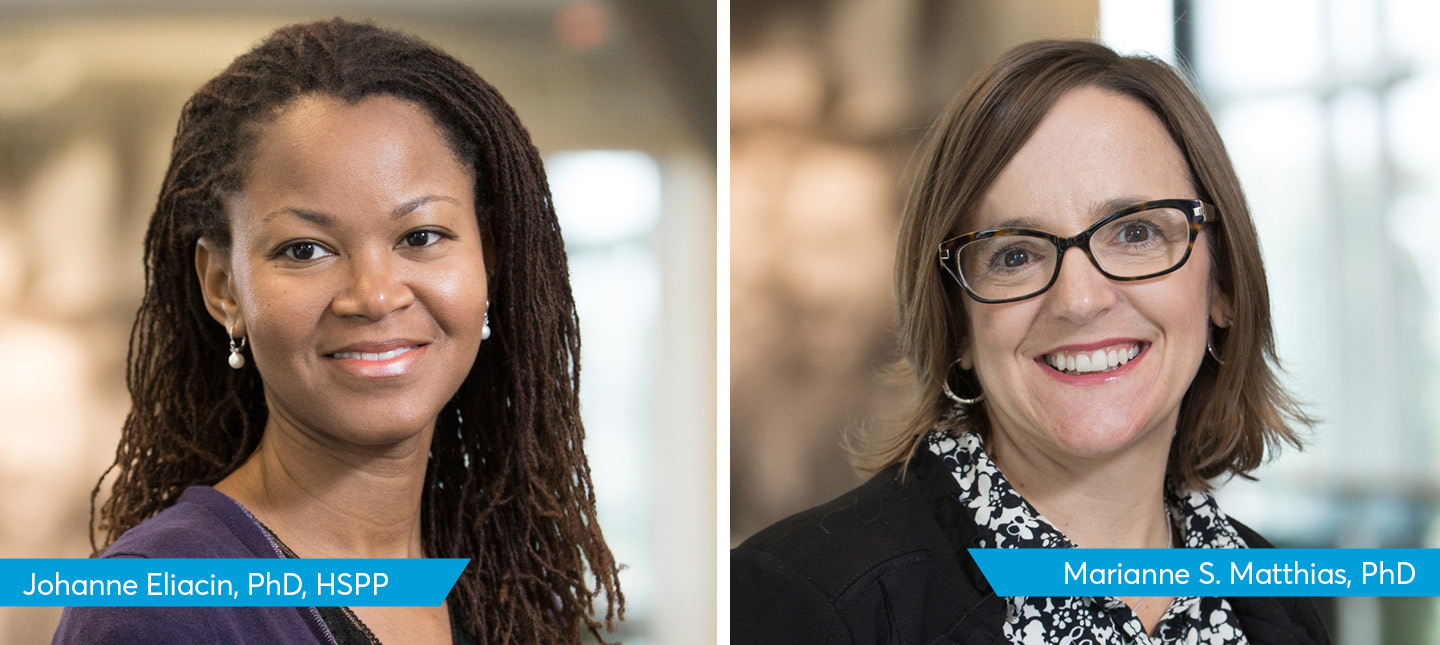$7.2 million total funding since 2015 for more providers of age-friendly healthcare
With the receipt this summer of an additional $3.75 million for a total of $7.2 million of U.S. Department of Health and Human Services (HHS) funding since 2015, the Indiana Geriatrics Workforce Enhancement Program (GWEP), led by Regenstrief Institute research scientist Debra Litzelman, M.A., M.D., is launching its second phase, known as GWEP 2.0.
The keystone of GWEP 2.0 will be the expansion of the Indiana Geriatrics Education and Training Center (Indiana GETC) with the goal of developing a healthcare workforce that maximizes patient and family engagement and improves health outcomes for older adults through the integration of geriatrics with primary care.
“Patients over age 65 are complex, presenting multiple medical problems as well as significant issues around geriatric syndromes, so addressing all this in a 10 or 15 minute primary care office visit can be overwhelming for the healthcare team,” said Dr. Litzelman. “We want to train primary care physicians, residents, medical students, nurses, social workers and other health care providers to do a better job of caring for this vulnerable population as we work with patients, families and caregivers to educate them about dementia and other challenges they may face.”
About 200 clinicians and an estimated 10,000 patients, family members and caregivers received education or training during the five-year duration of GWEP 1.0. At least as many will be reached in GWEP 2.0
“Our goal with the further development of GWEP 2.0 is to provide easy and quick screening tools that can be built into an electronic medical record system complemented by efficient workflow patterns enabling the interprofessional healthcare team to expand its focus beyond the patient’s diabetes, lung and heart problems to common geriatrics issues like falls and depression,” said Dr. Litzelman. “And we will train present and future clinicians to appreciate and utilize these supports as they care for our growing older adult population.”
Dr. Litzelman and colleagues from Regenstrief and the Indiana University schools of medicine, nursing and social work will work with clinicians, patients and caregivers at 17 Eskenazi Health and HealthNet community health centers in central Indiana. Both Eskenazi Health and HealthNet are federally qualified healthcare facilities with outpatient clinics that qualify for specific reimbursement systems under Medicare and Medicaid due to their patient population.
GWEP 1.0 initially focused on older adults and depression, dementia, falls, risky medication use and, in its final year, opioid use. GWEP 2.0 will add to these additional foci on hypertension, colorectal cancer screening and goals of care and advance care planning for those older than age 65.
In addition to the work within the health clinics, GWEP 2.0 will allow for the partnership of community-based organizations to enhance the integration of medical and community services. Education and training will be offered to community-based providers to further their knowledge and awareness in caring for older adults. GWEP 2.0 also will also explore gaps in healthcare, promote age-friendly and dementia-friendly services and address the social determinants of health. Patients, families and caregivers will be provided with education to improve awareness and comfort in addressing health needs and advance care planning decisions.
Dr. Litzelman is a health services researcher, a practicing internist and holds a master’s degree in gerontology. She is associate director of the William M. Tierney Center for Health Services Research at Regenstrief Institute, the D. Craig Brater Professor of Global Health Education and a professor of medicine at Indiana University School of Medicine.
The five years of funding for the project is provided by HHS’s Health Resources and Services Administration (HRSA), the primary federal agency for improving healthcare to people who are geographically isolated, economically or medically vulnerable.
This IGETC project is supported by the Health Resources and Services Administration (HRSA) of the U.S. Department of Health and Human Services (HHS) as part of an award totally $7.2 million. The contents are those of the author(s) and do not necessarily represent the official views of, nor an endorsement, by HRSA, HHS or the U.S. Government.










